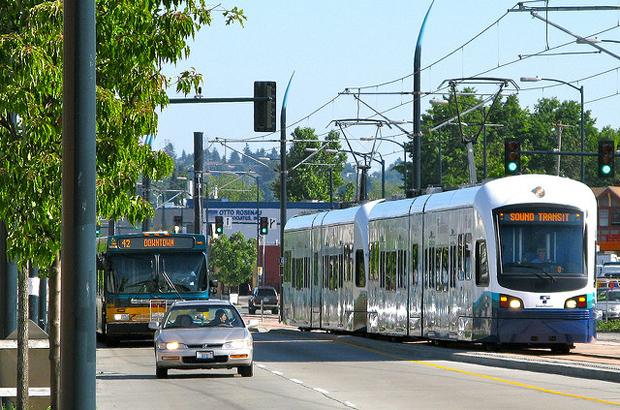Massachusetts is taking proactive steps to address the growing challenges that climate change poses to its transportation infrastructure. As rising temperatures, extreme weather events, and sea-level rise threaten to disrupt transit systems across the state, officials and planners are gearing up to enhance resilience and ensure reliable mobility for residents. The move comes amid broader statewide efforts to adapt to environmental changes and safeguard critical services that underpin daily life and economic activity.
Table of Contents
- Massachusetts Prepares Transit Infrastructure for Rising Climate Risks
- Detailed Analysis of Vulnerabilities in the State’s Public Transportation Network
- Strategies for Integrating Resilience and Sustainability in Transit Planning
- Expert Recommendations for Enhancing Emergency Response and Community Engagement
- In Retrospect
Massachusetts Prepares Transit Infrastructure for Rising Climate Risks
Massachusetts is intensifying efforts to safeguard its transportation systems against the escalating effects of climate change. With rising sea levels, severe storms, and unpredictable weather patterns threatening critical infrastructure, state agencies are implementing forward-thinking strategies to enhance the resilience of roads, bridges, and transit lines. The initiative prioritizes not only repairing and upgrading vulnerable structures but also integrating climate-adaptive designs to withstand future environmental stresses and reduce long-term risks.
Key components of the state’s approach include:
- Strengthening flood defenses around transit hubs and vulnerable coastal routes
- Incorporating advanced materials and engineering practices to increase durability
- Conducting comprehensive climate risk assessments in transportation planning
- Collaborating with local communities to ensure adaptive solutions meet diverse needs
This multifaceted effort reflects Massachusetts’ commitment to maintaining a robust transit network that supports economic vitality and public safety amid the realities of a changing climate.
Detailed Analysis of Vulnerabilities in the State’s Public Transportation Network
Massachusetts’ public transportation infrastructure faces meaningful risks as climate change accelerates, with rising sea levels and increased storm frequency threatening critical transit corridors. Coastal subway tunnels and key rail lines, particularly those near Boston Harbor, are vulnerable to flooding and storm surge, perhaps disrupting daily commutes and emergency response capabilities. Aging infrastructure further compounds these risks, revealing a pressing need for structural reinforcements and adaptive engineering solutions. Additionally,extreme heat events expose rail tracks and overhead wires to stress,causing service delays and equipment failures.
Beyond physical vulnerabilities, the network’s operational resilience is a focal concern, with emergency preparedness protocols and alternative routing options requiring urgent enhancement. Key points of weakness include:
- Subway tunnels with inadequate flood barriers
- Above-ground rail segments prone to heat-induced warping
- Bus routes vulnerable to road washouts and traffic congestion caused by extreme weather
- Power supply systems exposed to storm outages
Efforts to map these vulnerabilities have leveraged advanced climate modeling paired with real-time transit system data, setting the stage for a comprehensive overhaul aimed at safeguarding Massachusetts’ transit lifelines against the evolving climate crisis.
Strategies for Integrating Resilience and Sustainability in Transit Planning
In response to escalating climate threats, Massachusetts is adopting a multifaceted approach to transit planning that prioritizes both resilience and sustainability.Planners are emphasizing adaptability and adaptability in infrastructure design to withstand extreme weather events such as flooding and heatwaves. This includes elevating transit stations, reinforcing critical corridors, and incorporating advanced materials that resist climate-induced wear and tear. Integrating green infrastructure like permeable pavements and urban greenery further enhances system robustness while reducing environmental footprints.
Strategic investments also focus on long-term sustainability goals combined with resilience objectives. These efforts highlight:
- Expanding electric and hybrid transit fleets to reduce emissions and promote cleaner air.
- Enhancing real-time data systems for rapid response and efficient rerouting during disruptions.
- Community involvement and equity-focused planning to ensure vulnerable populations receive prioritized support.
- Cross-sector collaboration with environmental experts, urban planners, and public health officials to align transportation with broader climate action plans.
By embedding resilience into sustainability strategies,Massachusetts aims to safeguard its transit ecosystems against future climate stresses,ensuring safer,greener mobility for all residents.
Expert Recommendations for Enhancing Emergency Response and Community Engagement
Leading experts emphasize the urgent need for integrated emergency response systems tailored to the evolving challenges posed by climate change. They recommend strengthening coordination between transit authorities, public health agencies, and community organizations to ensure rapid information sharing and resource deployment during crises. Key strategies include:
- Multi-agency drills to simulate transit disruptions caused by extreme weather events
- Real-time data integration for faster decision-making
- Investment in resilient infrastructure that anticipates future climate risks
Community engagement emerges as a cornerstone in building resilient transit networks. Experts advocate for proactive outreach that empowers residents with knowledge and actionable plans, particularly targeting vulnerable populations. Suggested approaches focus on:
- Educational campaigns delivered through trusted community channels
- Inclusive forums allowing feedback on emergency preparedness and transit adaptation
- Partnerships with local leaders to increase trust and participation in resilience initiatives
In Retrospect
As Massachusetts prepares to confront the mounting challenges climate change poses to its transit systems, proactive measures and strategic planning will be essential to safeguard mobility and resilience. The state’s commitment to innovation and infrastructure adaptation will play a critical role in ensuring that public transportation remains reliable and accessible amid evolving environmental realities. As these efforts unfold, Massachusetts may well serve as a model for other regions facing similar threats to their transit networks.

